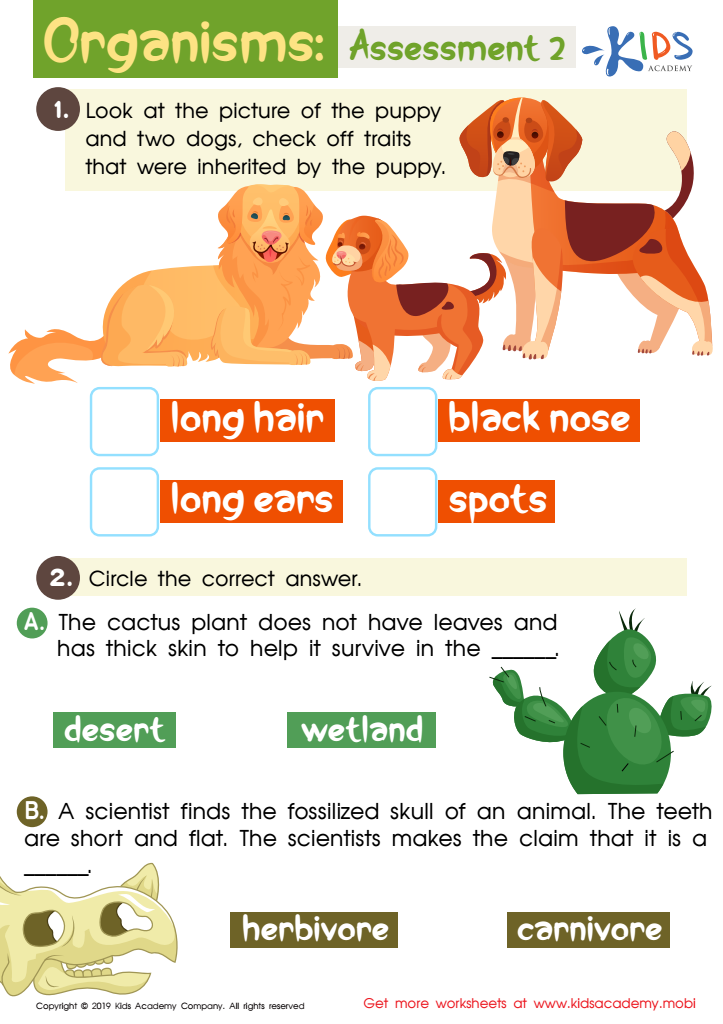Analyzing organisms relationships Worksheets for Kids
1 filtered results
-
From - To


Organisms: Assessment 2 Worksheet
Question/Answer
Why is the Analyzing organisms relationships skill important for Grade 3 students?
The Analyzing organisms' relationships skill is crucial for Grade 3 students as it helps them understand biodiversity, the interdependence within ecosystems, and the impact of human activities on the environment. It lays the foundation for critical thinking, fosters curiosity about nature, and encourages responsible environmental stewardship. This knowledge is essential for developing informed, environmentally-conscious individuals.
What are some effective activities to train students’ Analyzing organisms relationships skill when teaching them about Our Planet and Environment?
Effective activities include creating food web diagrams, engaging in simulations of predator-prey interactions, conducting field studies to observe organism relationships in their natural habitat, analyzing case studies on symbiotic relationships, and organizing debates on human impact on ecosystems. These activities promote critical thinking and allow students to explore the complexities of ecological interactions firsthand.
How to test a Grade 3 student’s Analyzing organisms relationships skills?
To test a Grade 3 student's ability to analyze organisms' relationships, employ activities such as matching organisms with their habitats, food chains, or symbiotic relationships through interactive worksheets. Incorporate simple scenarios or story problems requiring them to identify predator-prey relationships or distinguish between producers, consumers, and decomposers in various ecosystems. Utilize visual aids like pictures or diagrams for clarity.
 Assign to the classroom
Assign to the classroom











